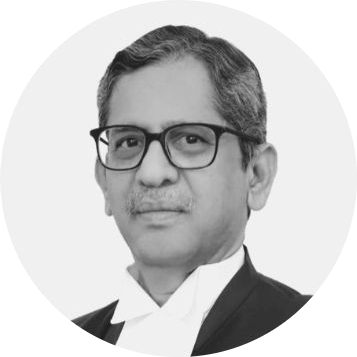Parsi Excommunication
Goolrokh Gupta v Burjor Pardiwala
This case will decide if a Parsi woman loses her own religious identity after solemnising her marriage under the Special Marriage Act.
Pending

N.V. Ramana CJI
R Banumathi J
Ashok Bhushan J
L.N. Rao J
M.M. Shantangoudar J
Abdul Nazeer J
Subhash Reddy J
B.R. Gavai J
Surya Kant J
Parties
Petitioner: Goolrokh Gupta
Lawyers: Indira Jaising; Shiraz C Patodia
Respondent: Sam Rusi Chothia; Adi Contractor; Bomi Erachshaw Mahernosh; Jahabux Jehangiriji Mahudawala; Jimmy Jal Vajifdar; Marzban Marfatia; Aspi Sanjaja Vakil; Noshir Zaroliwala
Lawyers: Gopal Subramanium; Percy Ghandy; Siddartha Chowdhury
Case Details
Case Number: SLP (C) 18889/2012
Next Hearing:
Last Updated: December 24, 2021
Key Issues
Whether a woman loses her religious identity and gains the religious identity of her husband, even after solemnising her marriage under the Special Marriage Act.
Whether the decision of the Gujarat High court that a woman’s religious identity is dependant on her father before marriage and on her husband after marriage violates Articles 14, 15, 21 and 25 of the Constitution.
Whether the practice of the Parsi trust of banning Parsi women who have married non-Parsis violates Articles 14, 15, 25 and 26 of the Constitution.
Case Description
This case has been tagged to the Sabarimala review petitions.
Ms Goolrokh Gupta, a Parsi by birth, married a Hindu man under the Special Marriage Act, 1954. She continued to practice the Parsi Zoroastrian religion after her marriage. However, the Parsi Trust in her hometown in Valsad, Gujarat, barred her from entering Parsi institutions, thus prohibiting her from performing the last rites of her parents in the event of their demise.
Ms Gupta approached the Gujarat High Court seeking a Writ to allow her to perform funeral ceremonies of her parents in the event of their death. The Gujarat High Court, in the ratio of 2:1, dismissed her petition on the primary ground that a Parsi woman, upon marriage with a non-Parsi under the Special Marriage Act ceases to be a Parsi, unless she obtains a declaration from a competent Court stating that she has continued to practice her Zoroastrian religion even after marriage.
Aggrieved by this order of the Gujarat High Court, Ms Gupta filed a Special Leave Petition before the Supreme Court. She contends that the actions of the trust and the order of the High Court violate provisions of the Special Marriage Act and various International Conventions, and also infringe her fundamental rights under Article 14, 21 and 25 of the Constitution.
The petition was first heard by a 3-Judge Bench of the Supreme Court, which has referred the matter to a Constitutional Bench.